The University of Faisalabad (TUF) is committed to promoting health and well-being through collaborations with national and international medical institutions, including Madinah and Ali Fatima Teaching Hospitals and the United Lincolnshire Hospital NHS Trust (UK). The university provides free medical care to underprivileged patients and regularly organizes medical and blood donation camps, awareness seminars, and community health programs. TUF focuses on reducing maternal and child mortality, combating infectious diseases, and advancing medical research. The university has also declared its campus smoke-free to promote a healthy environment. With a no-tobacco policy and modern healthcare facilities, TUF ensures accessible, affordable, and quality healthcare for all.
Events/Seminars/Workshops
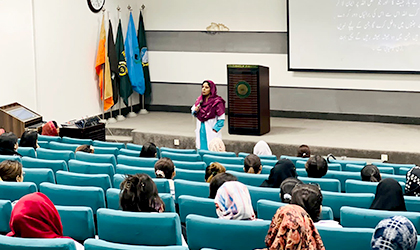
Workshop on Work Life Balance and Career Counseling
Prof. Dr Tanzeela Khalid conducted a Workshop on Work-Life Balance and Career Counseling for faculty members.The session emphasized mai...
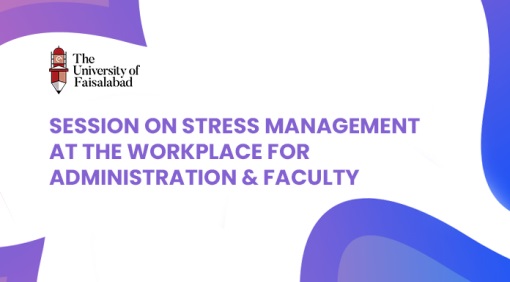
Session on stress management at the workplace for administration & faculty
The University of Faisalabad organized a session on stress management at the workplace for administration and faculty. The session aime...
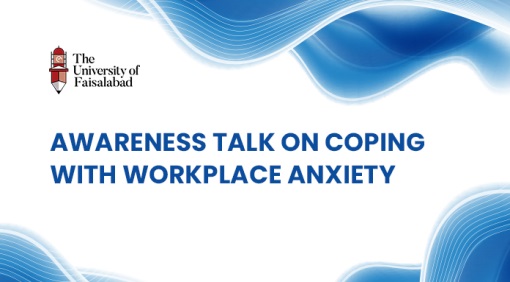
Awareness Talk on Coping with Workplace Anxiety
The University of Faisalabad organized an awareness talk on coping with workplace anxiety to help faculty and staff manage stress effec...
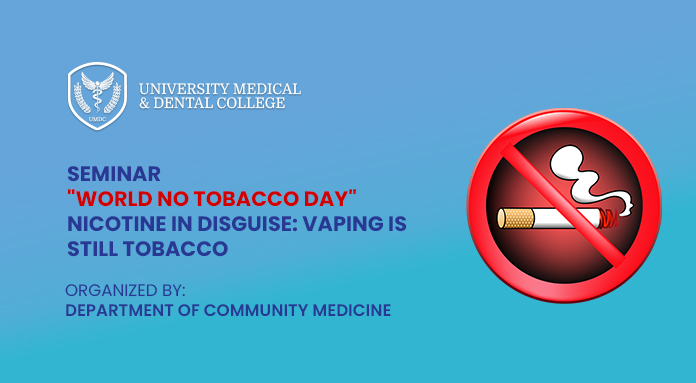
Seminar on World No Tobacco Day
The University of Faisalabad observed World No Tobacco Day through an awareness seminar organized by the Department of Community Medici...
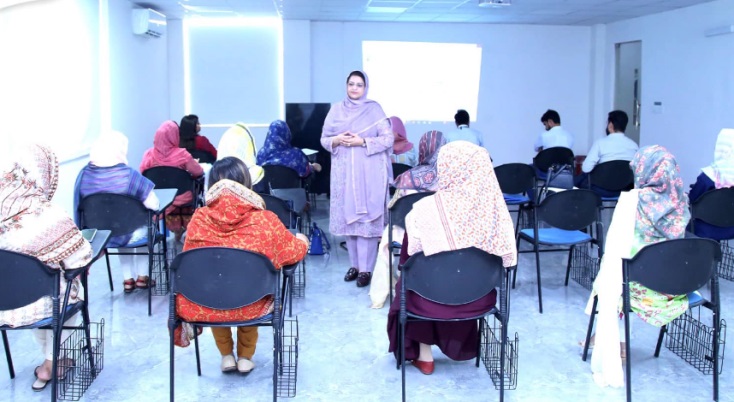
Counselling Sessions
The university conducts counseling sessions to support students’ mental, emotional, and academic well-being. These sessions provide a s...
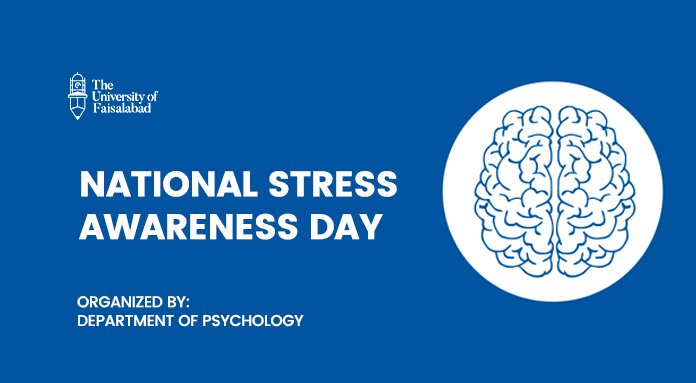
National Stress Awareness Day
The University of Faisalabad observed National Stress Awareness Day to promote mental health and emotional well-being among students. T...

Seminar on Psychological Impact of Social Media Use Sparked Dialogue at TUF
The University of Faisalabad organized a seminar on the psychological impact of social media use to raise awareness about mental health...
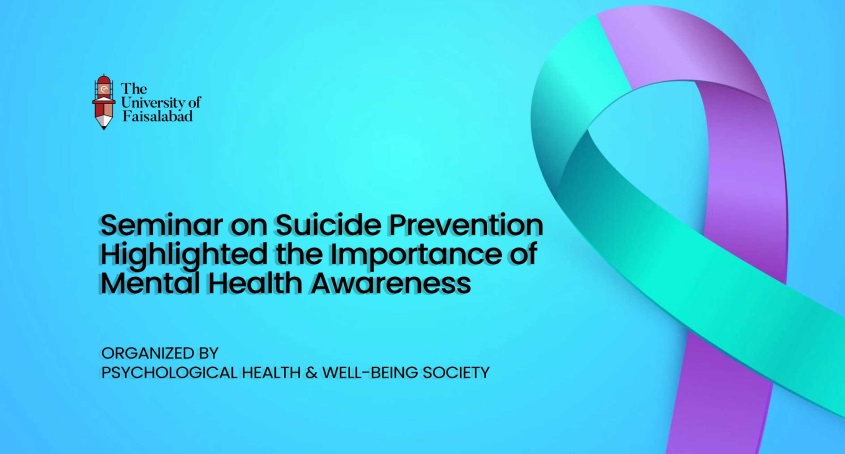
Seminar on Suicide Prevention Highlighted the Importance of Mental Health Awareness
The Psychological Health & Well-being Society organized a seminar on Suicide Prevention. The purpose was to spread awareness, encourage...
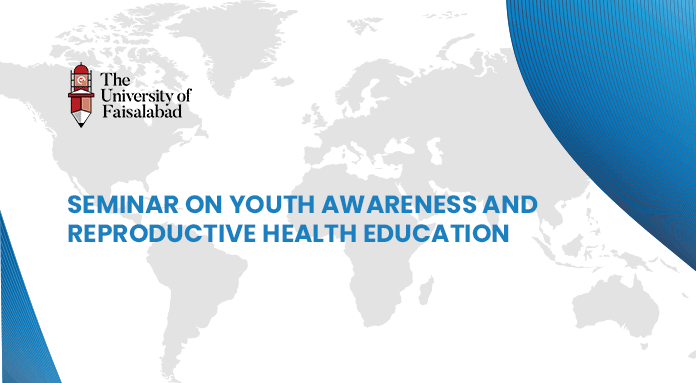
Seminar on Youth Awareness and Reproductive Health Education
The University of Faisalabad organized a Seminar on Youth Awareness and Reproductive Health Education to enhance students’ understandin...
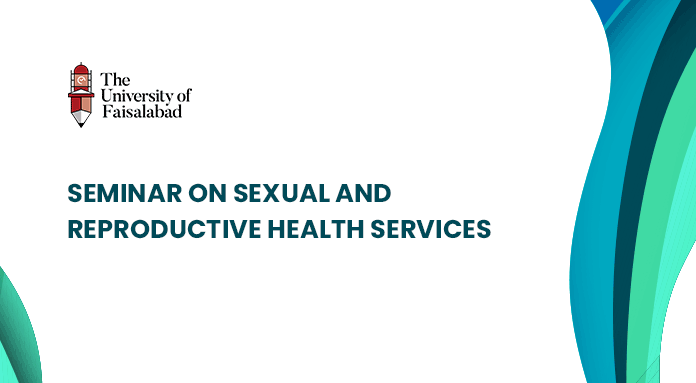
Seminar on Sexual and Reproductive Health Services
The University of Faisalabad organized a seminar on Sexual and Reproductive Health Services to raise awareness among students about mai...
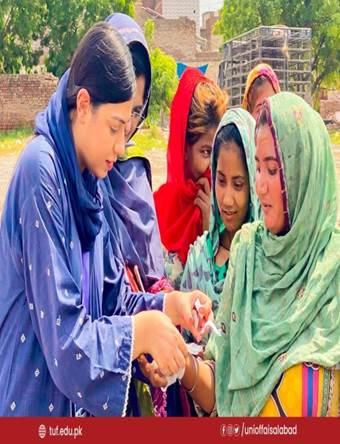
Community Outreach on Patient Safety and Health Equity
A Community Outreach on Patient Safety and Health Equity was organized to raise awareness about safe healthcare practices and ensure eq...
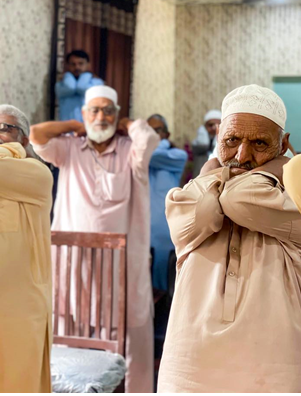
Community Outreach on Physical Therapy for Older Adults
A Community Outreach Program on Physical Therapy for Older Adults was organized to promote mobility, health, and well-being among senio...
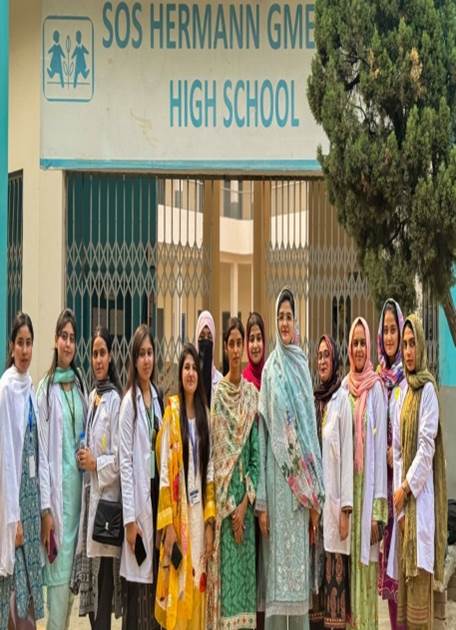
Outreach Program to Enhance Emotional Well-being of Children at SOS Village
An Outreach Program was organized at SOS Village to enhance the emotional well-being of children through counseling, interactive activi...
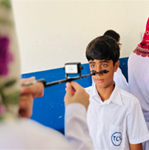
Vision Screening Camp at The Country School
A Vision Screening Camp was conducted at The Country School to assess and support the eye health of students. The camp provided eye exa...
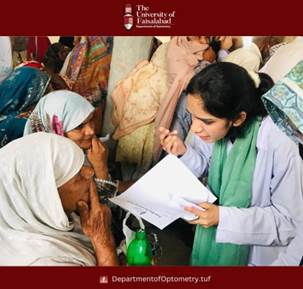
Bringing Clarity to Communities – Community Civic Engagement Camp
The Bringing Clarity to Communities – Community Civic Engagement Camp was organized to raise awareness about civic responsibilities and...
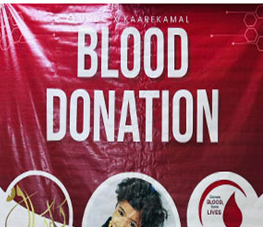
Thalassemia Awareness & Blood Donation Camp
A Thalassemia Awareness & Blood Donation Camp was organized to educate the community about thalassemia prevention, early diagnosis, and...
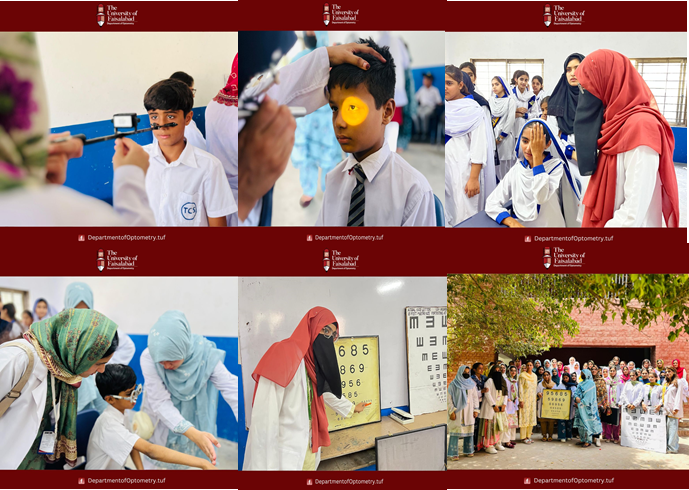
Vision Screening Camp at The Country School
A Vision Screening Camp was organized at The Country School to assess and support the eye health of students. The camp provided eye exa...
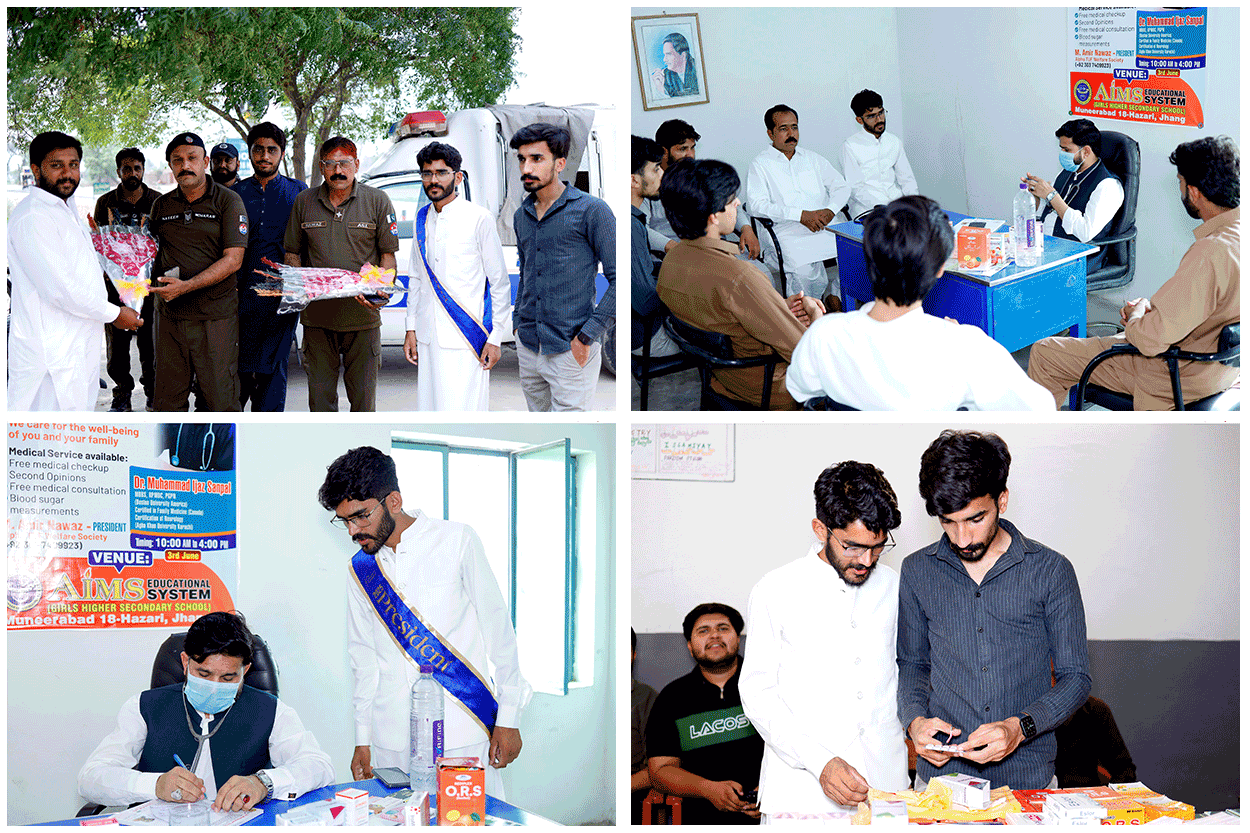
Alpha TUF Welfare Society Organizes Free Medical Camp in 18-Hazari, Jhang
The Alpha TUF Welfare Society organized a free medical camp in 18-Hazari, Jhang, providing essential health check-ups and medical servi...
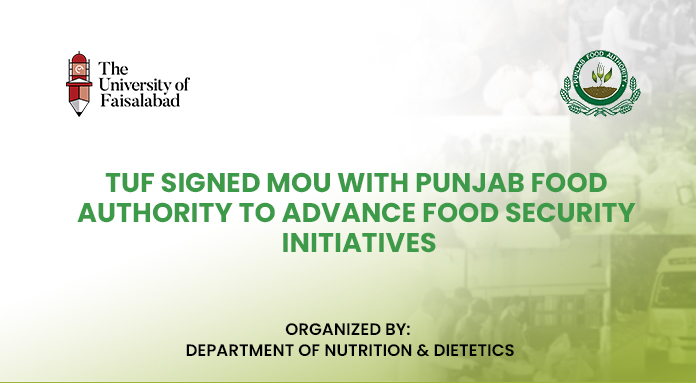
TUF Signed MoU with Punjab Food Authority to Advance Food Security Initiatives
TUF has signed an MoU with Punjab Food Authority . The event was graced by Director General Mr. Asim Javed and Chairman BOG Mr. Haider...
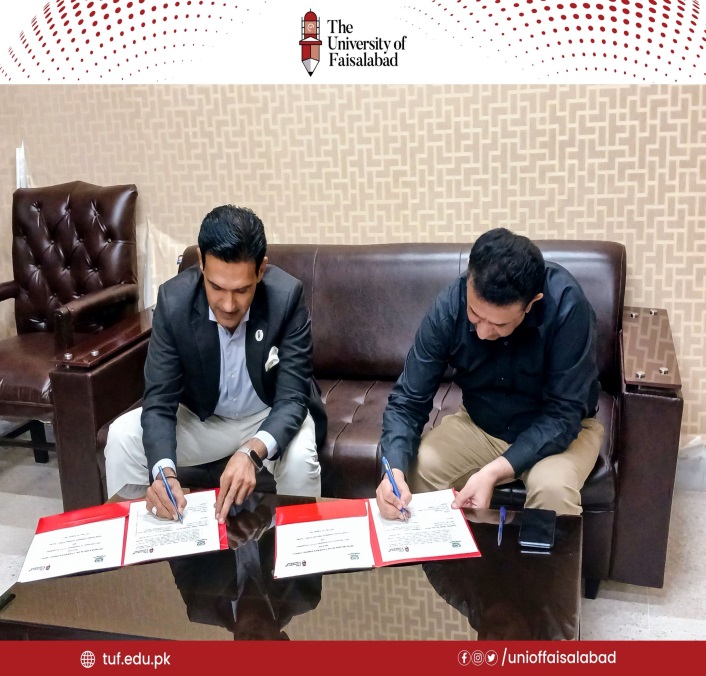
TUF signs an MoU with the Food Science Research Institute
The University of Faisalabad signs an MoU with the Food Science Research Institute, NARC to strengthen academia–industry linkages and c...
Community Engagement

TUF RENEWS MOU WITH DATH FOR DRUG CONTROL
The University of Faisalabad (TUF) is committed to promoting a healthy environment, recently reaffirmed by its designation as a smoke and drug-free institution. In partnership with the Drug Advisory T...

MoU with University of Sialkot
The University of Faisalabad and the University of Sialkot have signed a Memorandum of Understanding (MoU) to establish a collaborative partnership focused on health sciences. This agreement aims to e...

TUF COLLABORATION FAISALABAD MEDICAL UNIVERSITY
The University of Faisalabad and Faisalabad Medical University (FMU) have established a collaborative partnership to enhance the educational experiences of students in Allied Health Sciences. This ini...

AGREEMENT BETWEEN POWIŚLAŃSKI UNIVERSITY KWIDZYN AND THE UNIVERSITY OF FAISALABAD
Powiślański University has also signed an agreement with The University of Faisalabad. This collaboration aims to strengthen partnerships in health-related fields, particularly in nursing and other he...

COLLABORATION WITH JIANGSU FOOD & PHARMACEUTICAL SCIENCE COLLEGE, CHINA
The University of Faisalabad signed a letter of intent with Jiangsu Food & Pharmaceutical Science College, China to promote academic activities in Food and Nutritional Sciences. This collaboration is...

COLLOBORATION WITH SHAUKAT KHANUM MEMORIAL CANCER HOSPITAL AND RESEARCH CENTRE
The MOU signing ceremony between Shaukat Khanum Memorial Cancer Hospital and Research Centre (SKMCH&RC) and The University of Faisalabad represents a crucial step towards advancing Sustainable Develop...






Memorandum of Understanding between 92 News HD and The University of Faisalabad
The University of Faisalabad and 92 News HD have signed a Memorandum of Understanding. The goal of this Memorandum of Understanding is to establish a strong working partnership in terms of disseminati...

Memorandum of Understanding between The University of Faisalabad and University of Health Sciences
The memorandum was signed between the University of Faisalabad and University of Health Sciences Lahore to strengthen the academic cooperation in both institutes.

Memorandum of Understanding between The University of Faisalabad and The University of Lahore
The university of Faisalabad signed MoU in collaboration with The University of Lahore.The purpose of this MoUs is to promote education and scientific culture and women empowerment in the country.

Memorandum of Understanding between The University of Faisalabad and United Lincolnshire Hospital Trust
The United Lincolnshire Hospital Trust in England and the University of Faisalabad have signed a Memorandum of Understanding. The purpose of this Memorandum of Understanding is to foster scientific an...

Memorandum of Understanding between The University of Faisalabad and Punjab Institute of Nuclear Medicine (PINUM)
The Punjab Institute of Nuclear Medicine (PINUM) and the University of Faisalabad have signed a Memorandum of Understanding. The goal of this Memorandum of Understanding is to start and develop postgr...

Memorandum of Understanding between The University of Faisalabad and Global Shaper
The University of Faisalabad signed MoU with Global Shaper for the purpose of achieving various aims and objectives. Partners acknowledge that this Memorandum does not create a contractual relationshi...

Memorandum of Understanding signed between Madinah Teaching Hospital and The University of Faisalabad
The University of Faisalabad and the Madinah Teaching Hospital signed a Memorandum of Understanding. The goal is to provide free health care services to university students and staff, as well as clini...

Memorandum of Understanding Between Ali Fatima Hospital and The University of Faisalabad
Ali Fatimah Hospital and the University of Faisalabad have signed a Memorandum of Understanding (AFH). The goal of this memorandum of understanding is to give infrastructure and amenities to the Unive...




